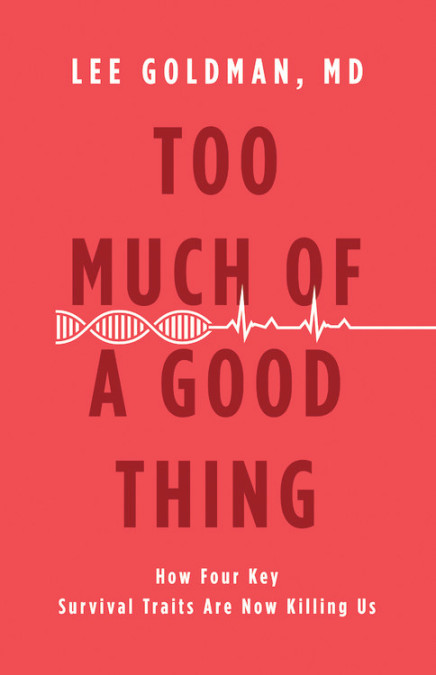Too Much of a Good Thing by Lee Goldman

Humans have spent most of their history as nomads and hunter-gatherers. In recent centuries, the environment has changed much more rapidly than evolution and natural selection have been able to adapt. Several formerly-advantageous traits from the past are suddenly among the leading causes of death in modern times.
Thrift: The human body has an exceptional ability to store excess calories as fat and to bounce back after weight loss. Now that food is no longer scarce and irregular, obesity and diabetes are global problems.
Salt Retention: Humans evolved in a low-salt environment - they have intense cravings for salt and sophisticated mechanisms to avoid losing too much of it. Humans now eat several times as much salt as their distant ancestors. High salt consumption is associated with bloat and high blood pressure.
Anxiety and Depression: Humans evolved anxiety as a way of fearing danger, social rejection, and social treachery from others. Sadness exists to make humans fear setbacks and to motivate them to bounce back after experiencing losses. The stakes are lower in modern times, but modern people are subject to a relentless barrage of threatening and negative information. Humans’ overpowered stress responses are now putting them into permanent unproductive ruts. Suicide is now among the top ten causes of death.
Clotting: To avoid death from injuries and childbirth, humans evolved extremely powerful blood clotting mechanisms. In modern times, death from bleeding is rare and death from unwelcome blood clotting (heart attacks, strokes etc) is the number one most common cause of death.
Long-term natural selection cannot be expected to solve most of the above problems since many of them don’t cause health problems until after the child-bearing years. Many modern health problems can be partially mitigated through better diets and increased physical activity. However, relying on public awareness campaigns, government regulations, and individual willpower has largely been a failed strategy so far in improving public health.
The greatest potential for improvement comes from better medicine, especially in the pharmacological space. Many people are uncomfortable about taking drugs like antidepressants and blood thinners because they are unnatural. However, since our bodies are now so far out of sync with our environments, manual corrections are likely the only practical way forward.
